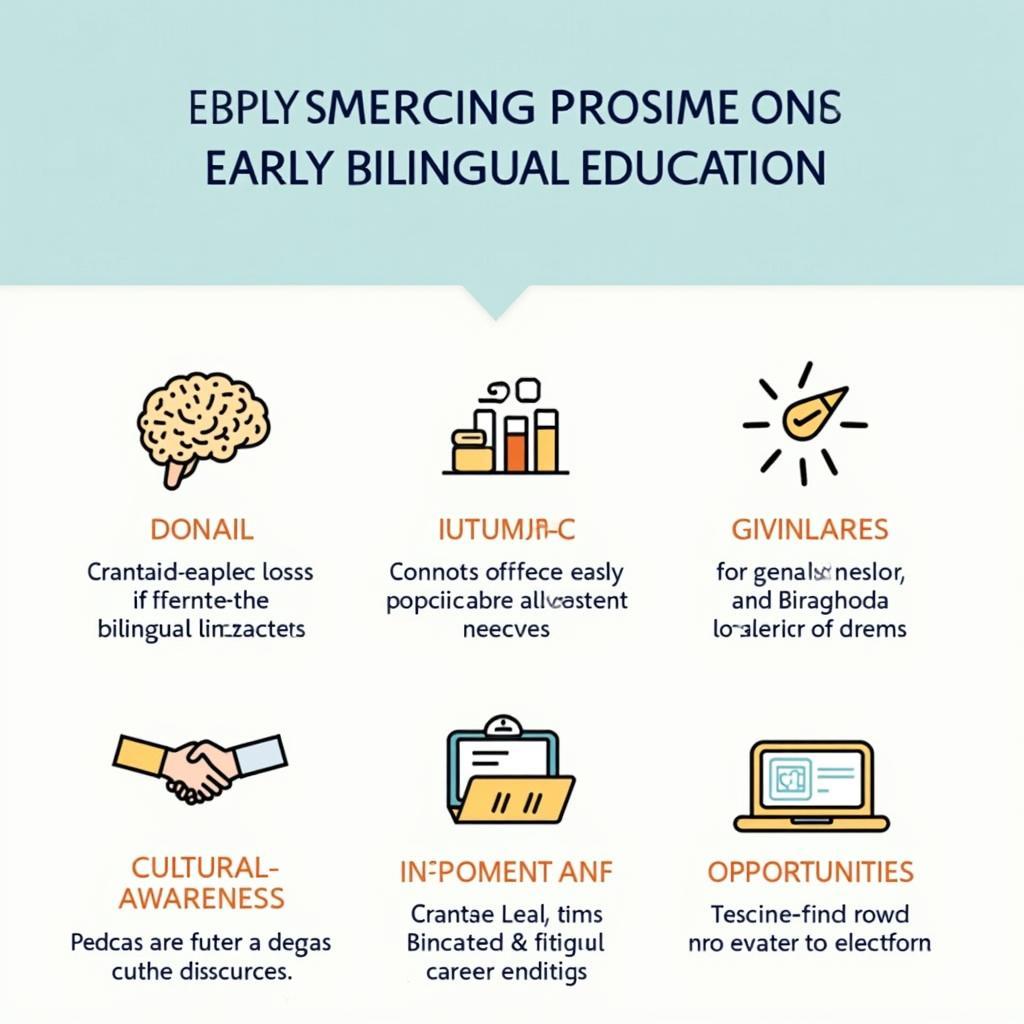Bilingual education is a frequently tested topic in IELTS Writing Task 2, appearing in various forms approximately 2-3 times per year. Based on analysis of past exam questions from 2018-2023, this topic often emerges in Agree/Disagree or Discussion essay types. The theme connects strongly to The benefits of early language learning and reflects growing global interest in multilingual education.
Nội dung bài viết
Sample Question Analysis
Some people believe that children should begin learning a second language as soon as they start school. Others think it is better to wait until they are older. Discuss both views and give your opinion.
This question requires examining both perspectives on the timing of second language education while expressing a personal stance. It connects to importance of early childhood education in cognitive development.
 Young students participating in bilingual education program
Young students participating in bilingual education program
Band 9 Sample Essay
The debate over when children should commence learning a second language has garnered significant attention in educational circles. While some advocate for early language acquisition, others prefer delayed introduction. I firmly believe that starting second language education in early schooling offers substantial advantages.
Those supporting early language learning argue that young children possess remarkable neural plasticity, making them naturally adept at acquiring new languages. Research demonstrates that children who begin bilingual education in their first years of schooling often develop native-like proficiency in both languages. Moreover, early exposure to multiple languages enhances cognitive flexibility and problem-solving abilities, as highlighted in studies of benefits of bilingual education for children.
Conversely, proponents of delayed language learning contend that children should first establish strong foundations in their mother tongue. They argue that introducing a second language too early might confuse children and impede their primary language development. Additionally, older students may learn more efficiently due to their developed analytical skills and better understanding of language structures.
However, scientific evidence predominantly supports early language education. Studies consistently show that bilingual children outperform their monolingual peers in cognitive tasks and demonstrate enhanced metalinguistic awareness. Furthermore, early exposure to multiple languages fosters cultural sensitivity and global awareness, crucial skills in our interconnected world.
In conclusion, while both perspectives have merit, the advantages of early second language education significantly outweigh potential drawbacks. The cognitive, cultural, and practical benefits make a compelling case for introducing second languages at the elementary school level.
 Benefits of early bilingual education visualized
Benefits of early bilingual education visualized
Band 6.5 Sample Essay
The timing of second language education is a topic that many people disagree about. Some think children should start learning new languages when they begin school, but others say it’s better to wait until they are older. I think starting early is better.
People who support early language learning say young kids can learn languages easily. When children are young, they can pick up new words and pronunciation naturally. Also, learning two languages helps them think better and understand different cultures.
On the other hand, some people think children should wait to learn a second language. They say kids need to be good at their first language before learning another one. They also think older students can learn faster because they understand grammar better.
In my opinion, starting early is more beneficial. Young children can learn languages without much effort, and they don’t feel shy about making mistakes. Also, knowing two languages from an early age helps them in their future careers and education.
To conclude, although there are different opinions about when to start learning a second language, I believe starting in early school years is more advantageous.
Key Vocabulary
- Neural plasticity (n.) /ˈnjʊərəl plæˈstɪsɪti/ – brain’s ability to change and adapt
- Cognitive flexibility (n.) /ˈkɒɡnətɪv ˌfleksəˈbɪləti/ – ability to switch between thinking about different concepts
- Metalinguistic awareness (n.) /ˌmetəlɪŋˈɡwɪstɪk əˈweənəs/ – ability to think about language as a system
- Monolingual (adj.) /ˌmɒnəˈlɪŋɡwəl/ – speaking only one language
- Impede (v.) /ɪmˈpiːd/ – delay or prevent progress
Advanced Sentence Structures
- Complex with relative clause: “Children who begin bilingual education in their first years of schooling often develop native-like proficiency in both languages.”
- Compound-complex: “While some advocate for early language acquisition, others prefer delayed introduction, but research supports the former approach.”
- Conditional with modals: “Starting second language education early could potentially enhance a child’s cognitive development and future career prospects.”
Practice this essay topic yourself and share your response in the comments for feedback and improvement suggestions.


